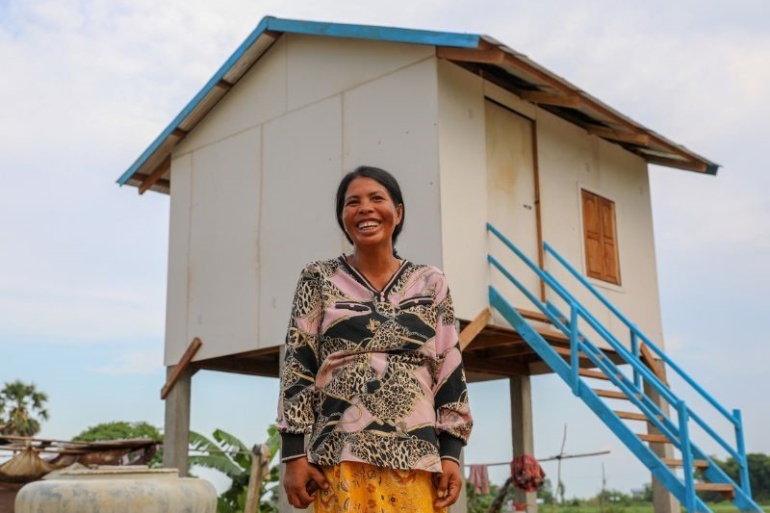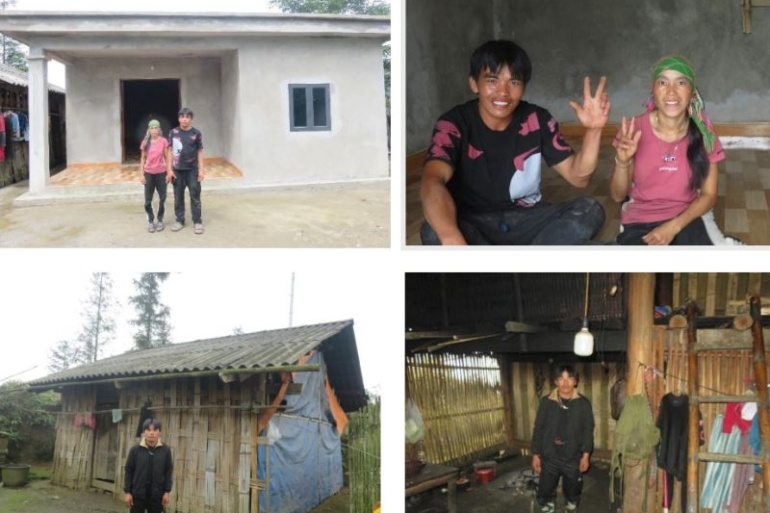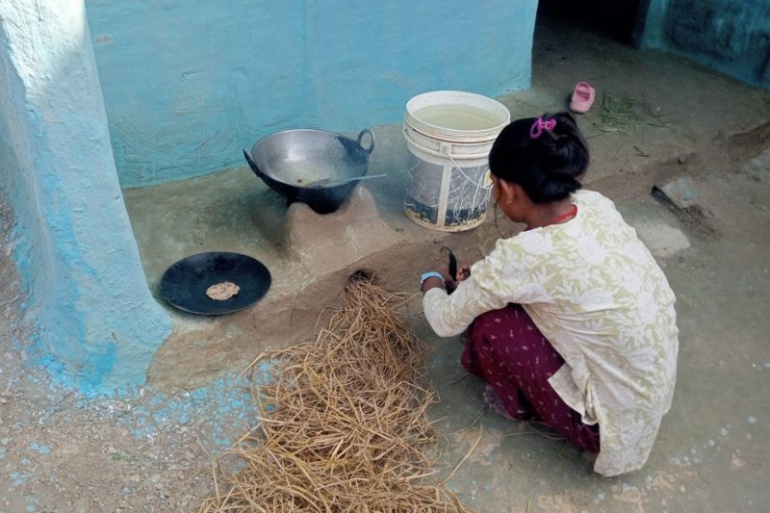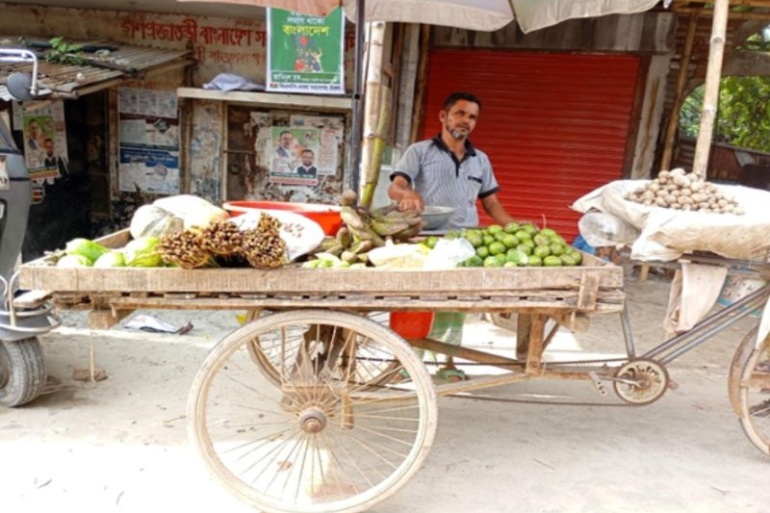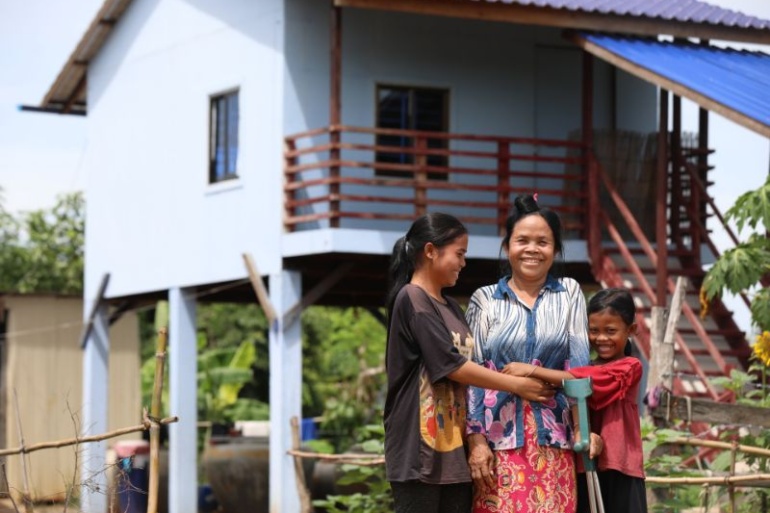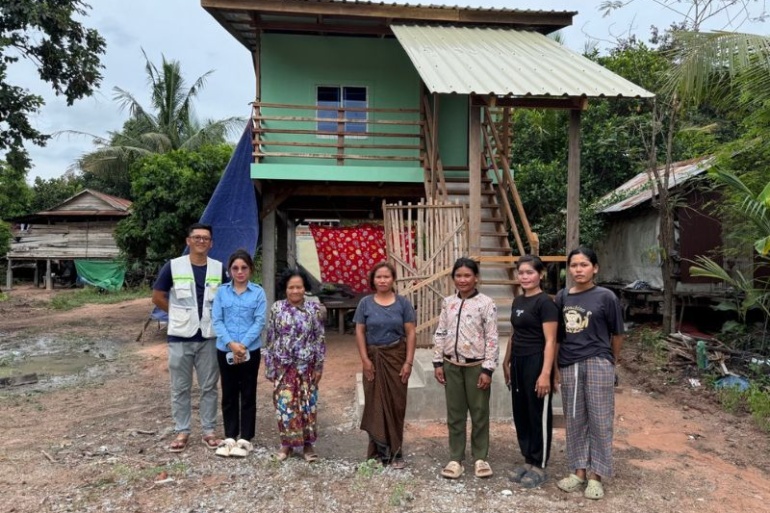Together, we build sustainable development
From Cambodia to, Vietnam, Nepal, Bangladesh and Fiji, we worked alongside local partners and community leaders to expand access to decent housing, basic services, and secure land rights, creating lasting impact and change. Habitat for Humanity Australia receives support from the Australian Government principally through the Australian NGO Cooperation Program (ANCP). This enables us to implement impactful projects that support community-led development.
Theory of change/ development approach
Through our international program we work in partnership with communities across the Asia-Pacific region, and the world, to address housing poverty and to support integrated community development. Our international program is designed to address multi-dimensional aspects of poverty and recognises the key role adequate housing plays in sustainable development.
CLIMATE RESILIENT COMMUNITIES
Habitat’s participatory approach builds capacities of communities to respond to climate risks. This includes through disaster preparedness planning and construction of appropriate critical infrastructure, from housing and toilets, to flood embankments and drainage; and influencing government priorities.
ADEQUATE HOUSING IN INFORMAL URBAN SETTLEMENTS
Half a billion people are now living in slum-type conditions with inadequate housing across Asia Pacific. Habitat is advocating for greater recognition and support to improve dire living conditions through working directly with slum communities and promoting more inclusive and responsive government policies and strategies.
WOMEN EMPOWERED TO LEAD CHANGE
Habitat recognises that gender disparities mean women are more vulnerable to the impacts of natural disasters and climate change. We work with local communities to empower women, increasing their voice in identifying problems, and prioritising and leading solutions that will benefit them and the entire community as a result - empowering women is beneficial for all.
Our work
Housing and climate resilience
Learn moreHumanitarian disaster response
Learn moreAdvocacy and influence
Learn moreWater, sanitation and hygiene
Learn moreLivelihoods
Learn moreGender equity, disability and social inclusion
Learn morean overview of our work
Fiji
Cambodia
Nepal
Vietnam
Bangladesh
our sustainable development goals
We know that housing is climate action. We’re innovating to make homes safer, more sustainable, and more energy efficient, while aligning with the UN Sustainable Development Goals. Because every home is a step toward a better world.Habitat for Humanity Australia is committed to achieving UN Sustainable Development Goals throughout our programs. Housing is a driver, catalyst and contributor for the following five SDG goals:
1
No Poverty Adequate housing builds resilience and reduces vulnerability to economic, social, and climate-related shocks and disasters.
Gender Equality Equal access to housing protects women from discriminatory policies and practices related to land distribution, titling and inheritance.
Clean Water and Sanitation Access to clean water and sanitation are integral to safe, healthy, adequate housing.
Affordable and Clean Energy Housing systems that are energy-efficient and that use affordable, clean, energy save costs and reduces air pollution and the effects of climate change.
Sustainable Cities and Communities Access to affordable, adequate, safe, and inclusive housing and basic services increases resilience.
Take urgent action to combat climate change and its impacts.
A climate-resilient future starts with a home
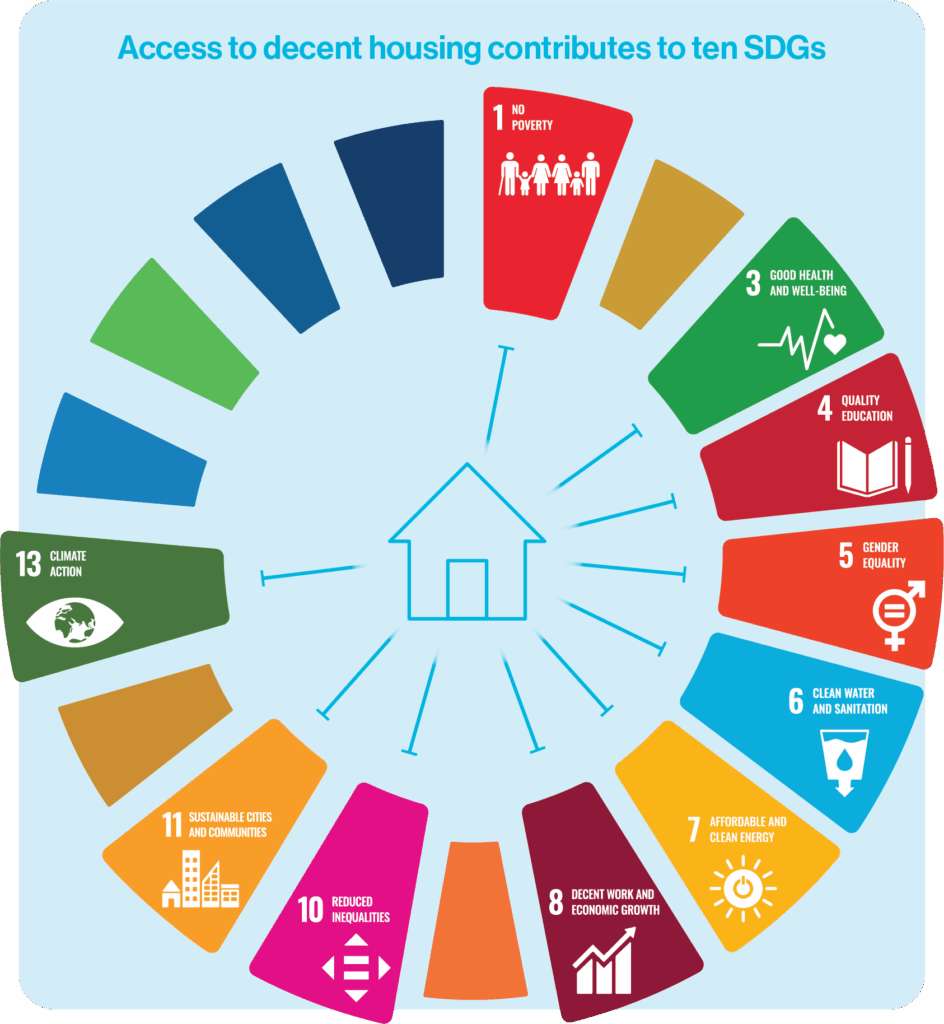
Stories from overseas
Our Development Approach: Building Resilience Through Community-Led Action
Climate Resilient Communities
Building Climate Resilience Through Housing
Adequate Housing in Informal Urban Settlements
Building empowerment for women and marginalised groups in Cambodia
Women Empowered to Lead Change in their Community
Want to make a real difference in the world?
Global Village is the answer. Join us in our short-term international volunteer program to build and improve homes and futures for vulnerable communities overseas.


